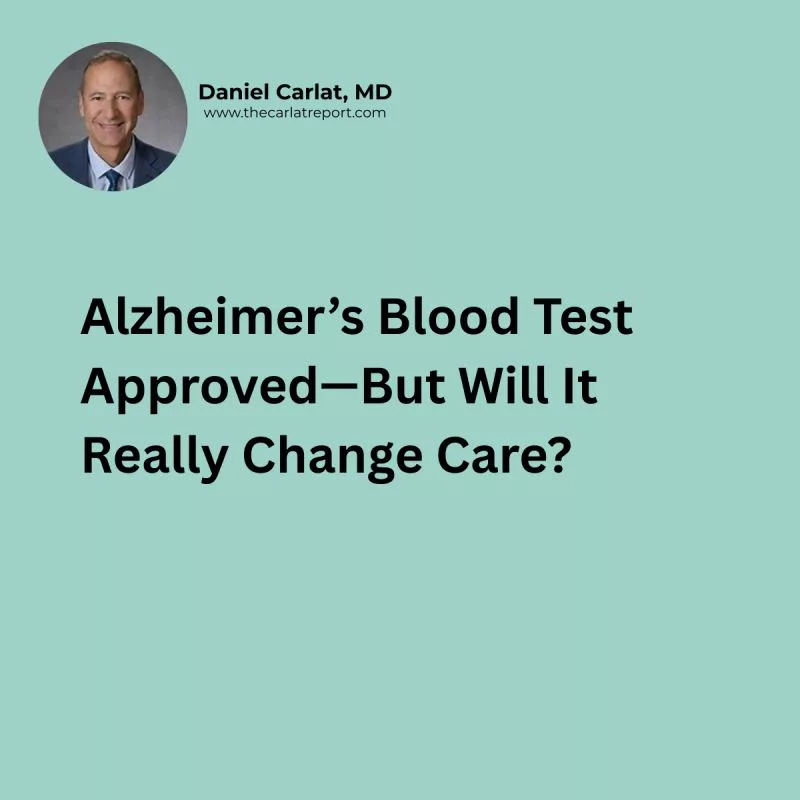This week, the FDA cleared the first blood test for Alzheimer’s disease: the Lumipulse G pTau217/β-Amyloid 1-42 Plasma Ratio. It sounds like a big step forward. Maybe it will prove to be one. But after 22 years of Carlat Report coverage of overhyped tests and treatments, I’ve learned to pause before celebrating “firsts.”
Let’s unpack what this test actually offers—and where the clinical utility starts to fray.
What this test CAN do:
- Detect amyloid pathology in symptomatic adults 55+
- Serve as a confirmatory tool in specialty care settings
- Reduce need for PET scans or lumbar punctures
- Support eligibility decisions for anti-amyloid medications
- Offer biological data that may be useful in select, uncertain casesWhat this test CANNOT do:
- Diagnose Alzheimer’s disease on its own
- Predict progression from MCI to dementia
- Screen asymptomatic people (not studied, not approved)
- Distinguish between dementia subtypes or mixed pathologies
- Meaningfully change care for most patients already diagnosed clinicallyWhat’s the real clinical value?
For most patients, we already have enough information from history, exam, and cognitive testing to diagnose probable Alzheimer’s. This test doesn’t change that—it just adds a biological data point. In select edge cases, that may be helpful. But for many, it could lead to false reassurance, overdiagnosis, or requests for testing outside of approved indications.
Takeaway
This blood test is an impressive technical achievement—but one with modest practical value for now. It won’t clarify every diagnostic gray zone. It doesn’t predict future decline. And like so many “breakthroughs” we’ve covered in the Carlat Report, it risks being overused before its role is truly clear.
Join the conversation on LinkedIn with Dr. Carlat
Will this test improve care—or just increase testing demand and diagnostic ambiguity?
Share to bring clinical nuance to the hype
Follow for evidence-based skepticism in psychiatry
Dementia-Related Resources from The Carlat Report:
Distinguishing the Three D's: Delirium, Dementia, Depression Author: Stephanie Collier, MD, MPH
Pharmacotherapy for Dementia Author: Stephanie Collier, MD
Which Leisure Activities Can Lower Dementia Risk? Author: Paroma Mitra, MD


_-The-Breakthrough-Antipsychotic-That-Could-Change-Everything.webp?t=1729528747)



